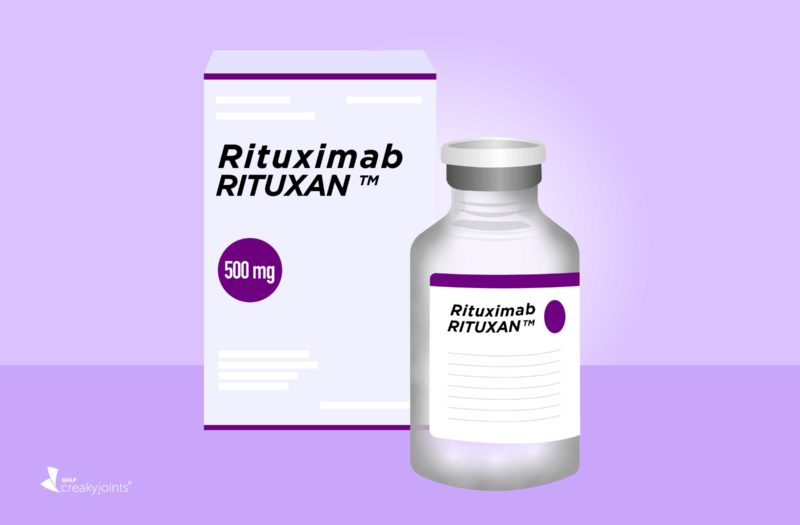Key Takeaways
- The biologic rituximab reduces the immune system’s response to the COVID-19 vaccine because it affects the body’s ability to make antibodies.
- However, rituximab users who got two doses of the COVID vaccine still had a strong T cell response, which is another part of the immune system.
- Getting a third vaccine dose boosted both antibody and T cell response, showing how important the third dose is especially for people on rituximab.
If you have rheumatoid arthritis (RA) and take the biologic medication rituximab, your doctor might have told you that vaccines are less likely to adequately protect you from infections, including COVID. That’s because rituximab (Rituxan and MabThera) works by targeting B cells, which your immune system needs to make antibodies. But new evidence suggests that the COVID vaccine will still offer people on rituximab significant protection — especially if you opt for a third dose of it.
How is this possible? Helping your body to make antibodies is just one part of how vaccines work to produce immunity; vaccines also affect other parts of the immune system.
Your adaptive (acquired) immune system is designed to fight off invaders, and it works in two main ways: One is by making antibodies that can recognize a specific foreign threat and kill it while it’s still circulating in bodily fluids. The other entails getting T cells to pinpoint which of your cells have already been infected and kill them off so they don’t continue to infect other healthy cells.
In a new study, published in The Lancet Rheumatology, researchers from Norway explored whether rheumatoid arthritis patients taking rituximab would mount a humoral (antibody) and/or cellular (T cell) response to the COVID vaccine. Ninety rituximab users participated in this study, and a smaller subset (19 patients) also had their cellular responses analyzed.
The researchers also had access to more than 11,000 control samples (from people who did not have RA or take rituximab).
After two vaccine doses, 98 percent of control subjects had produced a strong antibody response, but only 22 percent of the rituximab group did. Meanwhile, all of the control subjects had T cell responses, as did 74 percent of rituximab users (CD*+ T cells).
Forty-nine RA patients did not have a sufficient number of antibodies after two doses, so they were given a third vaccine dose about 70 days later. After the third dose, eight of these individuals had developed a strong antibody response. The third dose also prompted T-cell responses in all of them.
“Most rituximab-treated patients did not have [sufficient antibody] responses to two or three vaccine doses, but did have T cell responses… upon receiving a third dose,” the authors wrote. “A third vaccine dose given six to nine months after a rituximab infusion might not induce a [antibody] response, but could be considered to boost the [T cell] immune response.”
Get Free Coronavirus Support for Chronic Illness Patients
Join the Global Healthy Living Foundation’s free COVID-19 Support Program for chronic illness patients and their families. We will be providing updated information, community support, and other resources tailored specifically to your health and safety.
Adaptive Immunity – Humoral and Cellular Immunity. Healio Learn. Immuno-Oncology.
https://www.healio.com/hematology-oncology/learn-immuno-oncology/the-immune-system/adaptive-immunity-humoral-and-cellular-immunity.
Jyssum I, et al. Humoral and Cellular Immune Responses to Two and Three Doses of SARS-CoV-2 Vaccines in Rituximab-Treated Patients with Rheumatoid Arthritis: A Prospective, Cohort Study. The Lancet Rheumatology. December 23, 2021. doi: https://doi.org/10.1016/S2665-9913(21)00394-5.






